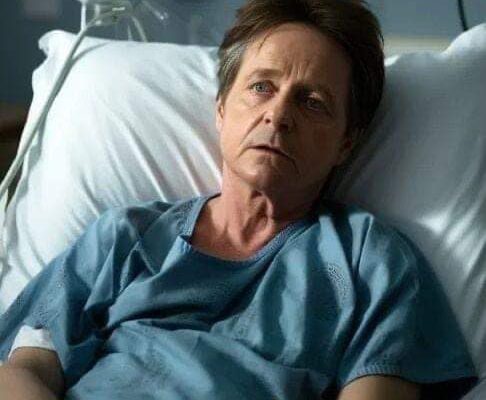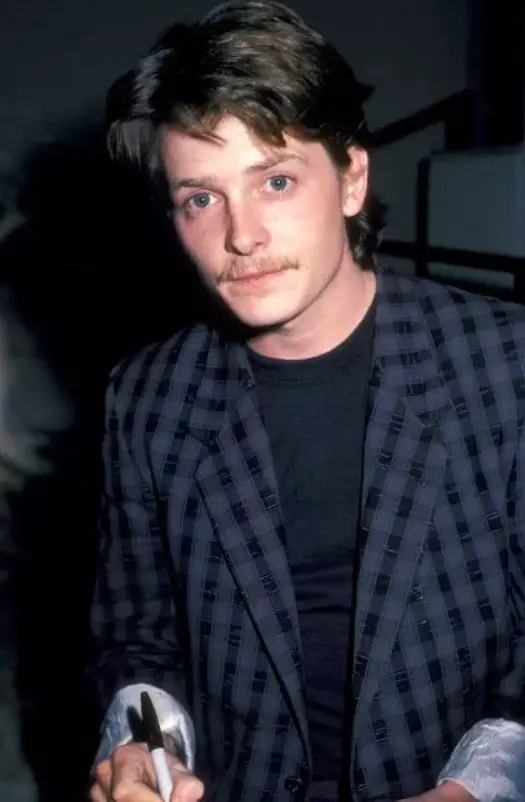At the beginning of this year, the much-anticipated nonfiction film featuring the life of beloved actor Michael J. Fox premiered at the Sundance Film Festival in Park City. The film, produced by Oscar-winning filmmaker Davis Guggenheim, retells the story of the actor who rose to stardom in the 80s by landing roles in iconic movies such as Back to the Future, and series such as Family Ties.
The film had a special showing at the South by Southwest (SXSW) Film Festival in Austin, Texas, and Michael was there accompanied by wife Tracy Pollen. During the Q&A, he opened up about his life with Parkinson’s disease, which he was diagnosed with at the age of just 29.
It was short after he and Tracy got married and had their first child. Tracy never left her husband’s side and is his biggest support. The two are doing their best to cope with Michael’s condition and are working hard on raising funds for finding cure for Parkinson’s disease. He disclosed his condition with the public in 1998 and semi-retired from acting two years later as his health worsened.
It took young Michael a lot of time to accept the reality, but he finally decided to make the best out of his life despite the struggles the disease forced him to face.
“Parkinson’s sucks, but it’s a great life, so thank you for it,” the actor said. “Pity is a benign form of abuse. I can feel sorry for myself, but I don’t have time for that. There is stuff to be learned from this, so let’s do that and move on,” he contined.
“My fans have basically given me my life. I wanted to give these people who have done so much for me my time and gratitude. It was great for me to hear from all of you.”
In the past, the Spin City star spoke of the decision to continue making movies following the diagnosis and said, “I have no regrets. You do what you have to do, but you do not want to kill yourself. And that’s when I stopped.”
Along with his wife, Michael established the Michael J. Fox Foundation whose goal is finding cure for Parkinson’s disease through funded research. The organization is currently the largest non-profit founder of Parkinson’s disease research in the world. His dedication to helping patients with the disease he suffers from himself placed him on the 2007 Time Magazine’s list of 100 people “whose power, talent or moral example is transforming the world.”
Although he continued acting after the diagnosis, his work was mainly focused on lending his voice in films like Stuart Little and Disney’s Atlantis: The Lost Empire.
The actor has written four books, Lucky Man: A Memoir (2002), Always Looking Up: The Adventures of an Incurable Optimist (2009), A Funny Thing Happened on the Way to the Future: Twists and Turns and Lessons Learned (2010) and his fourth, No Time Like the Future, released on November 17, 2021.
Recently, he opened up about his life yet again and explained that despite his efforts to project positivity about his disease, things are getting harder.
“I’m not gonna lie. It’s gettin’ hard, it’s gettin’ harder. It’s gettin’ tougher,” Fox told CBS Sunday Morning anchor Jane Pauley.
“Every day it’s tougher. But, but, that’s, that’s the way it is. I mean, you know, who do I see about that?”
He also spoke about the spinal cord surgery he was forced to undergo.
“[I] broke this arm, and I broke this arm, I broke this elbow. I broke my face. I broke my hand,” Fox told Pauley.
“You don’t die from Parkinson’s. You die with Parkinson’s,” Fox concluded. “I’ve been thinking about the mortality of it. … I’m not gonna be 80. I’m not gonna be 80.”
“I’m in intense pain. Each tremor is like a seismic jolt,” the actor shared.
“It’s not so much pain from the movement, but from the not moving. It’s when you freeze, and in that freezing that not-movement becomes infused with all this energy and it becomes this burning, impending thing that never happens.
“I don’t want to get the violins out. I’ve broken my hand, my elbow, my humerus, my other humerus, my shoulder, my face and some other s— too. And all that stuff is amplified by the electricity of the tremors. So, yes, it hurts a lot. But what you learn is that nobody gives a s—. It’s just life. It doesn’t matter. You suck it up and you move on. And there might be a story to tell in it. But only that. There’s no chit that you can present to a window for a refund.”

Despite everything that is going on in his life, he promised his fans he’s not going anywhere.
“The depression is [not] so deep that I’m going to injure myself … it always comes back to a place where I go, ‘Well, there’s more to celebrate in my life than there is to mourn.’ The pain speaks for itself. You either tolerate it or you don’t. And I’m not going anywhere.”







